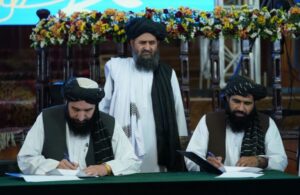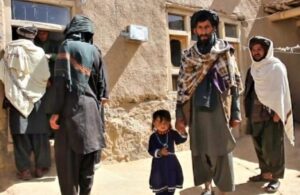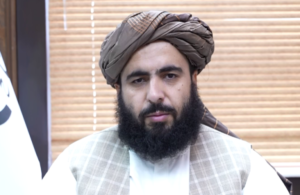KABUL (SW) – The UN Assistance Mission in Afghanistan as well as the United Nations Educational, Scientific and Cultural Organization have reiterated support for the independent media sector in the country.
In connection with the World Radio Day, a gathering was held at the Salam Afghanistan Media Organization (Radio Salam Watandar) with the presence of the Special Representative of the UN Secretary-General in Afghanistan, Roza Otunbayeva, the head of the United Nations Educational, Scientific and Cultural Organization (UNESCO) in Afghanistan, Patricia McPhillips and senior journalists and media managers.
The UN envoy and UNESCO Representative, Patricia McPhillips, renewed UN support to Afghan media with a visit to Radio Salam Watandar, one of the most far-reaching radio networks in the country, marking World Radio Day, devoted to the importance of the medium in conflict prevention and peacebuilding.
“I hope that Afghan radio stations will continue to play a role in promoting peace and healthy discourse to prevent conflicts and foster peace. Your programmes are like air. People need air as much as food”, said Otunbayeva.
“The UN supports media freedom and access to information,” reiterated UNESCO Representative.
Najibullah Arman, the editor of Salam Afghanistan Media Organization, said on the occasion that SAMO have operations going on remote parts of Afghanistan. “Our effort is to continue these programs which are prepared according to people’s needs. But considering the recent political developments and the economic situation of the media and media people, it is difficult to continue this way. We hope that both the government and support organizations will take action in this regard.”
Radio is the primary source of information among Afghans, with 80.4% of the population being regular listeners and 72.1% owning a radio, according to the most recent available survey (Afghanistan Media Landscape Guide APRIL 2022: CDAC Network). Afghanistan’s first domestic radio broadcast was in 1925, with Radio Kabul being the first station in the country.
According to the Afghan Independent Journalists Union (AIJU), there are around 223 radio stations currently operating across the country.
AIJU reported that in the beginning of 2021 there were 401 radios operating in the country. By the end of that year the number had dropped to 345. A total of 1,900 media workers, including 1,075 women, lost their jobs.
Zarif Karimi, acting head of Nai – Supporting Open Media in Afghanistan said, “We had remarkable achievements in terms of free media during the past two decades with sacrificing the lives of over 150 journalists.”
UN envoy Otunbayeva regretted that recent edicts targeting women by Afghanistan’s de facto authorities, have upended that progress.
“I call on the de facto authorities to reverse these restrictions,” she said.
World Radio Day was established by the United Nations General Assembly (A/RES/67/124) in 2012 as an International Day. At the global level, radio remains the most widely consumed medium.
ENDS






